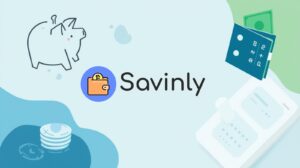Look, saving money? It’s one of those things everyone knows they “should” do, but most folks don’t actually get why it really matters. Budgeting often feels like a chore … a dull, endless list of “no’s” and “can’t haves,” right? But what if I told you that understanding the three reasons to save money are actually what makes all this—yeah, even the boring parts—feel a bit more doable, a little less exhausting?
I used to think saving was just about denying myself the small joys. Coffee runs, dinners out, last-minute online splurges—gone. But nope. Saving is more about building a safety net, freeing yourself from debt headaches, and then, finally, making room for your dreams. It’s these three reasons that changed the way I manage money, and today I want to share them with you—not as some boring rules, but as the friendly nudges that helped me, and maybe they’ll help you too.
Why Saving Feels Hard
Ever Get Stuck in the Spending Loop?
Here’s a common scene: bills pile up, you miss a payment or two, and suddenly you find yourself wondering, “Wait… how did it get so out of hand?” Well, that’s the trap of late payments—in fact, if you make a late credit payment, you might see the lender add extra fees or interest that can turn a small oops into a real headache. It’s frustrating, and honestly, it can feel unfair.
I remember one friend of mine who shrugged off a late bill for months. When she finally checked her statement… yikes. Her debt had ballooned because those small late fees kept stacking up unnoticed, like a nasty snowball rolling downhill. It made me realize something: without a solid “why” behind saving, it’s easy to feel stuck in this loop.
Mindset: The Hidden Gamechanger
We often hear budgeting advice that sounds like, “Just cut the extras!” But here’s the kicker—without a personal reason to save, that advice just won’t stick. One principle I love, inspired by The three reasons to save money are ramseyclassroom, is this: treat saving like a bill you owe yourself. Yes, yourself. What if you flipped the mindset to “pay myself first” instead of “pay bills first, maybe save later”? Trust me, it changes everything.
And, honestly, our parents had a knack for this, right? They saved more not because they made more, but because they had fewer distractions and fewer “gotta have it now” moments. Ever notice how impulse buys are everywhere today? It’s a different game, but we can still win.
The Safety Net
How Big Is Your Emergency Cushion?
Picture this: your car breaks down, or a pipe bursts—day-to-day disasters that can wreck your month’s budget in a blink. This is why building an emergency fund is numero uno on the list. Ask yourself which of the following would be considered an emergency fund expense? Spoiler alert—it’s those unexpected, unavoidable hits, not the cool new shoes or the latest phone upgrade.
Emergency Expenses vs. Wants
| Emergency Expense | Non-Emergency Expense |
|---|---|
| Car repair after accident | Monthly streaming subscriptions |
| Medical bills | New gadgets |
| Urgent home repairs | Coffee shop visits |
Starting small is key, no need for a massive fund overnight. Even tucking away a little bit each paycheck can build a financial cushion that saves you from stress and those awful late fees. Honestly, knowing there’s a fund when life throws a curveball feels like a warm, safe blanket in the dead of winter.
I learned this the hard way when my cat had a sudden emergency vet trip. Without a fund, I would have been scrambling for a loan or credit. Having even a few hundred dollars saved made all the difference. Wonders, really.
Untangling Debt
Why Debt Stress Is So Real
If you think debt just disappears without a plan, well—hold on. We’ve all been there, juggling statements, growing late fees, and feeling overwhelmed. When bills pile up, if you make a late credit payment, you might see the lender add yet another penalty that makes climbing out feel impossible.
But here’s where saving flips from “hard” to “helpful.” Building savings first gives you breathing room to tackle debt without the panic. It lets you choose your battle—for many, that’s using strategies like the snowball or avalanche method. (Snowball pays off the smallest debt first, avalanche takes on the highest interest.)
Start Paying Yourself—Seriously
There’s a little philosophy that changed my outlook—and it’s credited to some smart folks, like Dave Ramsey (you know, the “money guy” with lots of enthusiastic fans). A great principal for saving money is, Start paying yourself and dave ramsey. Simply put, you treat saving like a bill you literally owe yourself each payday.
It sounds simple, but it’s powerful. When you take even 5-10% off your income and stash it first thing, you create a buffer. That buffer means less stress when bills come due—and more motivation to pay down the dang debt that’s been a cloud over your head.
Honestly, one friend switched to this method, and within a year, chopped her credit card debt in half without feeling deprived. Guess what? She still enjoyed her weekend takeout—just planned a bit more.
Building Dreams
So, What’s the Third Reason?
You nailed the first two reasons—safety and breathing space—but the third? Well, the third reason to save money is for blank building. And that blank? It’s for building your future. Building freedom, joy, choices.
Think about the dreams you have. Maybe it’s buying a home, traveling without worrying about the price tag, or finally launching that side hustle. Saving isn’t just about pinching pennies; it’s the foundation for making those dreams real.
Make Saving Fun (Yes, Really)
“Saving is boring,” many say. And yeah, sometimes it feels that way. But it doesn’t have to be a drag. Remember that idea called “dreamscaping”? That’s just fancy talk for picturing what your savings could do for you. It’s a way to get excited about each dollar you tuck away.
I like to keep a little jar of coins and bills labeled “Dream Fund” right in my kitchen. Every time I add to it, it feels like a small victory. Maybe you prefer a fancy spreadsheet or a savings app that shows you progress. Whatever floats your boat.
Some folks swear by automation too—set it and forget it. It’s like paying your future self automatically, which echoes A great principal for saving money is, Start paying yourself and dave ramsey again. That way, you don’t even have to think about it.
Saving for Fun Vs. Saving Because…
| Saving for Fun | Saving Because (Goals) |
|---|---|
| Motivated by visible progress | Focused on future payoff |
| Uses small rewards | May require discipline |
| Feels lighter and less stressful | Builds real financial security |
Putting It All Together
So here’s what I want you to remember about the three reasons to save money are. It all boils down to this: first, protect yourself from life’s surprises with an emergency fund. Second, tackle debt with a solid savings buffer so you’re not drowning in late fees—because, trust me, if you make a late credit payment, you might see the lender add penalties that really sting. And last but not least, use saving to build the life you want; that kind of freedom is priceless.
It’s not about being perfect or counting every penny obsessively. It’s about starting where you are, with what you’ve got—and letting this simple framework guide your next money move.
Right now, why not try this? Pick just one of those reasons that speaks to you. Maybe it’s finally kicking off an emergency fund, or starting to pay yourself first each month. Automate a little savings—set it and forget it. Then watch how even small wins begin to shift your whole money story.
Ready to see how these ideas feel in your own wallet? Check out some easy-to-implement budgeting and saving tips, and learn which of the following would be considered an emergency fund expense? to get that safety net growing. Be kind to yourself—you’re building something better, step by step.













